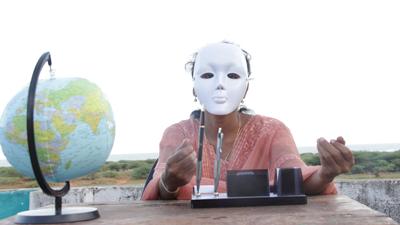‘Écriture Feminist’: Filmic Interventions in the Logics of the Anthropocene Seminar
- Time:
- 16:00 - 18:00
- Date:
- 12 November 2019
- Venue:
- Lecture Theatre B, Avenue Campus 65 Highfield Rd Southampton SO17 1BF
For more information regarding this seminar, please email Sofia Bull at S.Bull@soton.ac.uk .
Event details
Film Research Seminar Series, Autumn 2019
Abstract
There is a movement afoot by artists, filmmakers and even film scholars, to reclaim a space of “Science Fact” and the grounded stability it appears to offer. This move is so pronounced that Semiotexte editor, Lotringer was prompted to wonder whether “we are going to be closer to understanding the Anthropocene by turning ourselves into scientists??” Additionally, this dependency on precisely the same tools and technologies that have been used by corporations and governments for decades, implies an “unquestioned masculinist and technonormative approach” (Grusin) to the Anthropocene that far too many artists, scholars, and even activists have taken up. Remember, Haraway warned decades ago, “the eyes have been used to signify a perverse capacity—honed to perfection in the history of science tied to militarism, capitalism, colonialism, and male supremacy—to distance the knowing subject from everybody and everything in the interests of unfettered power.” Do we really believe that harnessing the same controlling power of vision will awaken a different critical response? Resistance is necessary, but how we resist and what tools we choose to use in that resistance, are crucial questions.
This presentation seeks to identify a mode of address, a rhetorical position, a discursive form, that might be capable of intervening in the logics of man-made disasters and offer a compelling alternative. We will look at examples of what I call “ecriture feminist”, projects that produce a “situated knowledge” that, in Haraway’s terms, “seek not the knowledges ruled by phallogocentrism […] and disembodied vision, but those ruled by partial sight and limited voice.” The work we will look at operates in an intersectional yet avowedly feminist register that while not necessarily rejecting all modes aligning with science and objectivity, refrains from reproducing its dangerous and damaging “god-tricks.”
Speaker
Alisa Lebow, Professor of Screen Media, University of Sussex, is a leading documentary film scholar. She is known for her ground-breaking work on first person film and questions of “the political” in documentary, most recently innovating in the digital humanities with Filming Revolution (Stanford Digital, 2018). Her books include A Companion to Contemporary Documentary (Wiley-Blackwell, 2015), The Cinema of Me (Wallflower, 2012) and First Person Jewish (University of Minnesota Press, 2008).
